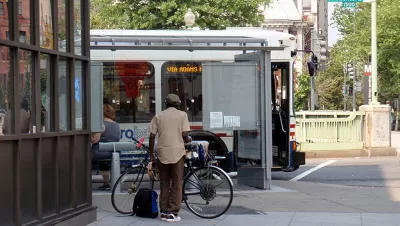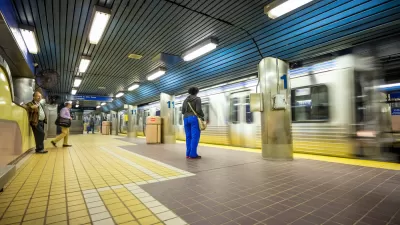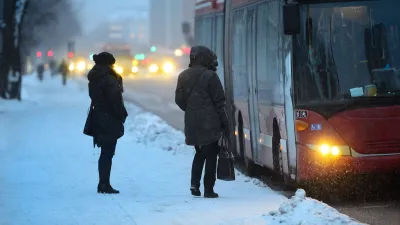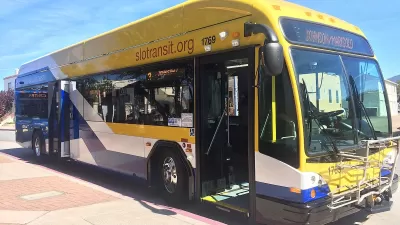Fare-free transit isn’t the climate change benefit that many have hoped, according to recent writing by David Zipper for Bloomberg.

Grandiose claims about the benefits of free transit for emissions reductions are “shaky at best,” according to an article by David Zipper published by Bloomberg in April.
“After more than a decade of transit agencies around the world experimenting with free trips, it’s far from clear that dropping fares delivers an environmental upside,” writes Zipper.
Numerous cities in the United States have experimented with fare-free transit since the outset of the Covid-19 pandemic. The Orange County Transportation Authority (in California), San Diego County, the Utah Transit Authority, the state of Colorado, Cincinnati Metro, and the city of Boston have considered or implemented free fare programs just since the beginning of 2022.
The problem, writes Zipper, is that despite the popularity of fare-free transit, these programs aren’t reducing driving substantially enough to reduce emissions. Data from some fare-free transit programs “suggests that making travel free enticed those who, due to limited income, would have otherwise walked, rode a bike or foregone the trip entirely,” according to Zipper.
More data on fare-free transit programs from around the world can be found in the source article below.
FULL STORY: Free Public Transit Is Not a Climate Policy

Maui's Vacation Rental Debate Turns Ugly
Verbal attacks, misinformation campaigns and fistfights plague a high-stakes debate to convert thousands of vacation rentals into long-term housing.

Planetizen Federal Action Tracker
A weekly monitor of how Trump’s orders and actions are impacting planners and planning in America.

San Francisco Suspends Traffic Calming Amidst Record Deaths
Citing “a challenging fiscal landscape,” the city will cease the program on the heels of 42 traffic deaths, including 24 pedestrians.

Defunct Pittsburgh Power Plant to Become Residential Tower
A decommissioned steam heat plant will be redeveloped into almost 100 affordable housing units.

Trump Prompts Restructuring of Transportation Research Board in “Unprecedented Overreach”
The TRB has eliminated more than half of its committees including those focused on climate, equity, and cities.

Amtrak Rolls Out New Orleans to Alabama “Mardi Gras” Train
The new service will operate morning and evening departures between Mobile and New Orleans.
Urban Design for Planners 1: Software Tools
This six-course series explores essential urban design concepts using open source software and equips planners with the tools they need to participate fully in the urban design process.
Planning for Universal Design
Learn the tools for implementing Universal Design in planning regulations.
Heyer Gruel & Associates PA
JM Goldson LLC
Custer County Colorado
City of Camden Redevelopment Agency
City of Astoria
Transportation Research & Education Center (TREC) at Portland State University
Jefferson Parish Government
Camden Redevelopment Agency
City of Claremont





























